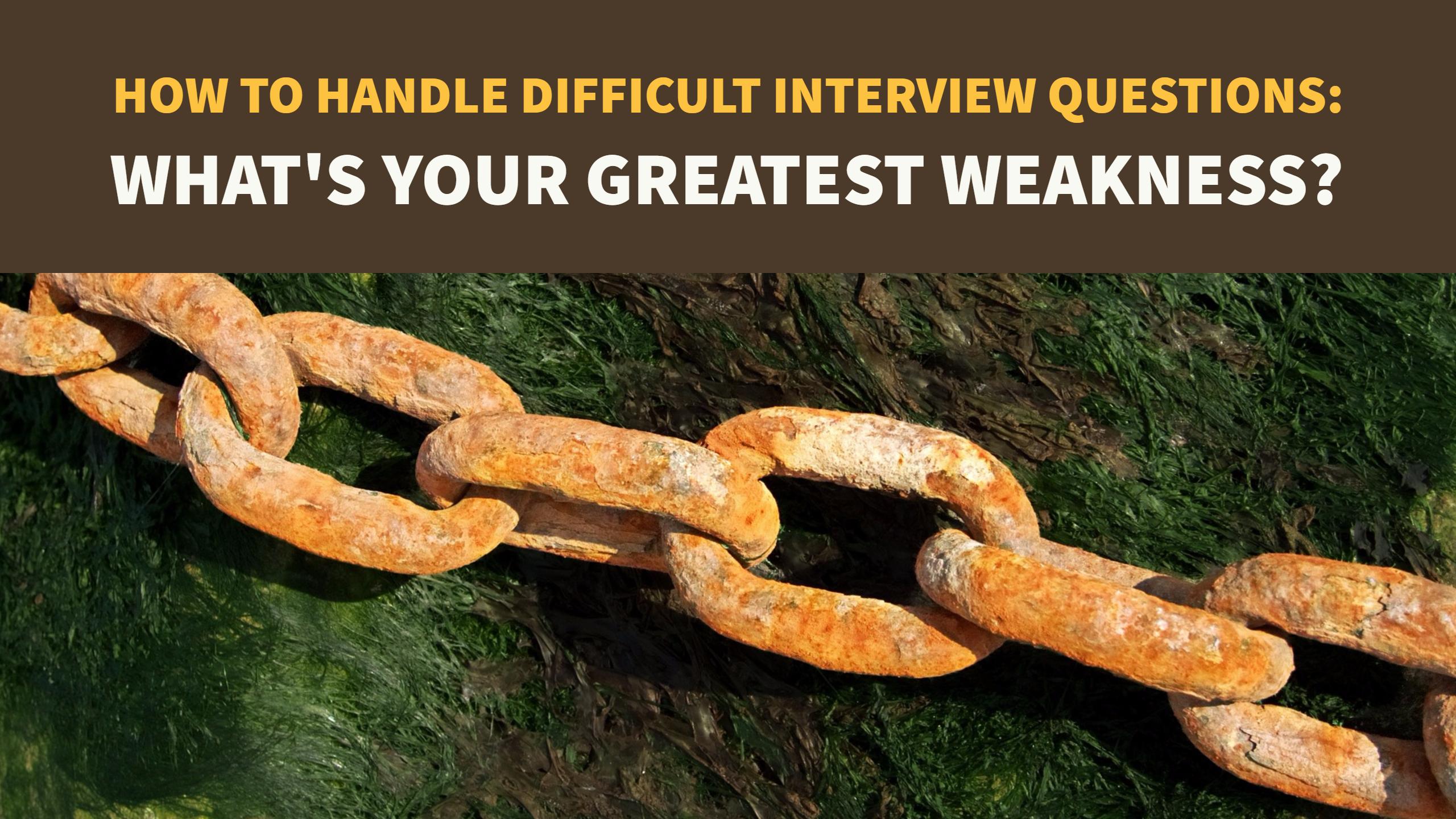The best way to handle difficult interview questions is to prepare for them in advance. Of course, you will never know every question that can come up, but you can know that many questions are common to all interviews. This question seems to be a favorite of most interviewers.
I think there are two reasons an interviewer might ask this question. First, the interviewer may be using it as a “gotcha” question. Hoping you will reveal something that will eliminate you as a candidate. I prefer to give interviewers the benefit of the doubt and think they are asking for the second reason. They want to know if you are self-aware enough to know you are not good at everything and do you have the initiative to improve that skill.
There are a few ways to answer this question. Let’s look at what constitutes a good response – and what doesn’t.
Here are some common mistakes…
Denial – No one is good at everything, the interviewer immediately recognizes this as an evasion of the question and while they may not follow-up with probing questions they have identified their perception of your weakness, you are deceptive and may not own up to your mistakes on the job.
Turn a weakness into a strength – I see this advice most often. “I work too hard.” “I’m a perfectionist.” Again, both these answers tend to be disingenuous and unauthentic.
Being flippant – “chocolate cake” or “kryptonite”, when you answer serious a question like this with a joke you are telling the hiring manager two things. Number one, you don’t respect the question enough to give it serious thought (which could lead them to think you also don’t respect or take the position seriously enough to warrant being hired) and number two, let’s be honest…you just look dumb.
Interviewers are looking for people that are honest and authentic, these answers show just the opposite.
Here is a good way to answer the question…
Even though this question is about weaknesses you need to focus your answer on the positive aspects of your skills and abilities as an employee. The answer should be two parts. First the weakness and second the steps you have taken to improve the skill.
Focus on non-critical skills – Analyze the skills and strengths required for the position you are interviewing for and then come up with an honest shortcoming that is not essential for success in that job.
For example, in a role that does not require public presentations, you might say “I’m naturally a quiet person and have never felt comfortable talking in front of groups. I recognized that this may be a block to future promotion, so I have started attending a weekly Toastmasters meeting; and while I’m not as proficient as I want to be, I have made great progress.”
There are several ways this question may be phrased.
- What is your greatest/biggest weakness?
- What do you consider to be your weaknesses?
- On you last performance appraisal what areas were noted for improvement?
- What kind of self-improvement have you done recently?
- What are your strengths and weaknesses?
- What would your current boss/co-workers say is your weakest area?
- Tell me about a time you failed.
- Describe a difficult work situation and what you did to overcome it.
A couple of learning points…
You also need to be prepared for the potential of the interviewer asking for a second or even third weakness.
Answering this question takes research into the job and the company, understand what the critical skills are and be sure to not use those as a weakness. There may also be “pet peeves” of the manager that are not in the job description, as part of your research you need to understand those.
Don’t over prepare for this answer, it needs to sound unscripted and you may need to adjust the answer based on the flow of the interview.
Most interviewers are more interested in how you answer the question than what you say. They want to know how you handle uncomfortable discussions so your answer should show courage and confidence.
Many interviewers have stopped asking this question because they realize no one is going to reveal their true weakness. Instead of this question they will ask probing behavioral based questions that will give them the information they need to assess your fit with the organization.
 Rick Christensen: Director, Career Transition Practice
Rick Christensen: Director, Career Transition Practice



